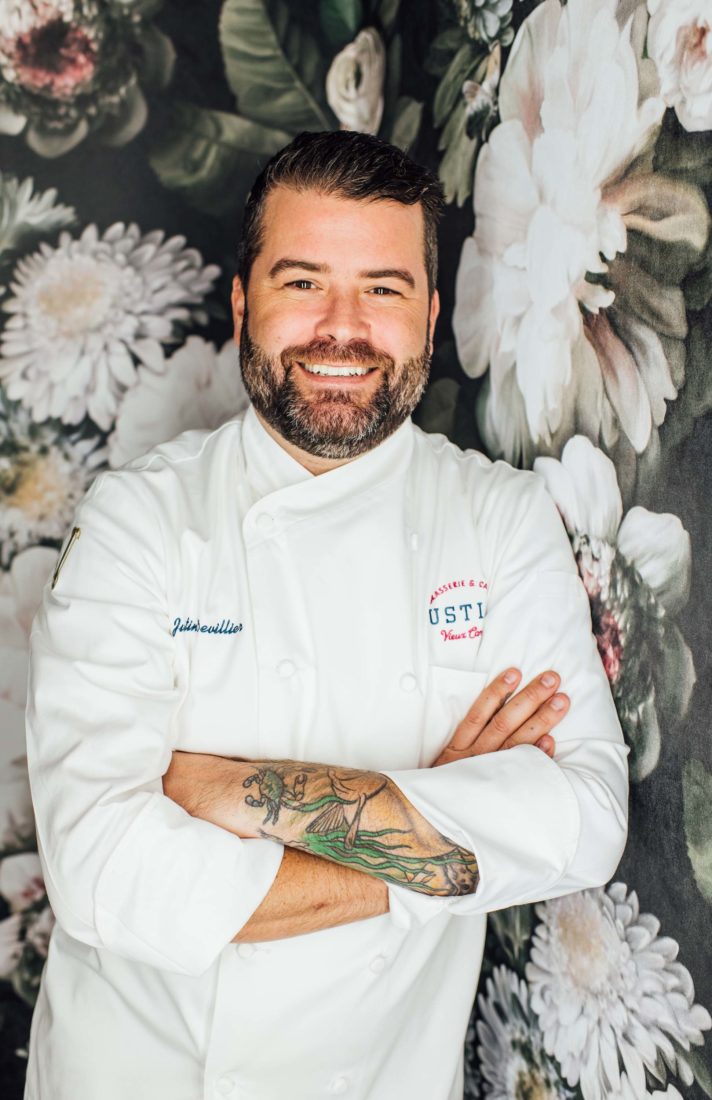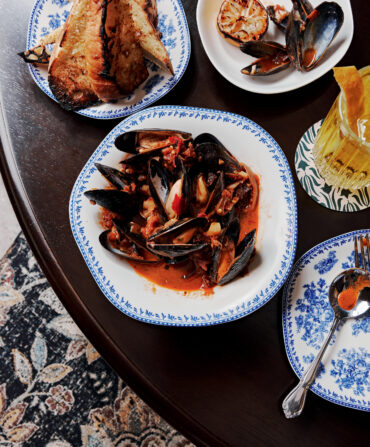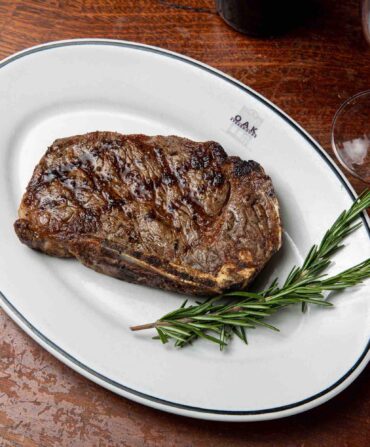Justin Devillier has been cooking gumbo since he was a teenager, but he’s been eating it his whole life. “My dad’s side of the family is from South Louisiana, so it was definitely a staple growing up,” says the California-born, New Orleans-based chef. A career spanning nearly two decades in some of the city’s most esteemed kitchens has only deepened his appreciation for the classic dish—but don’t ask him to tell you what makes a perfect batch. “I’ve cooked every version every which way,” he says. “I’m at the point now where I feel like it’s very personal, very much about what the individual wants to do.”
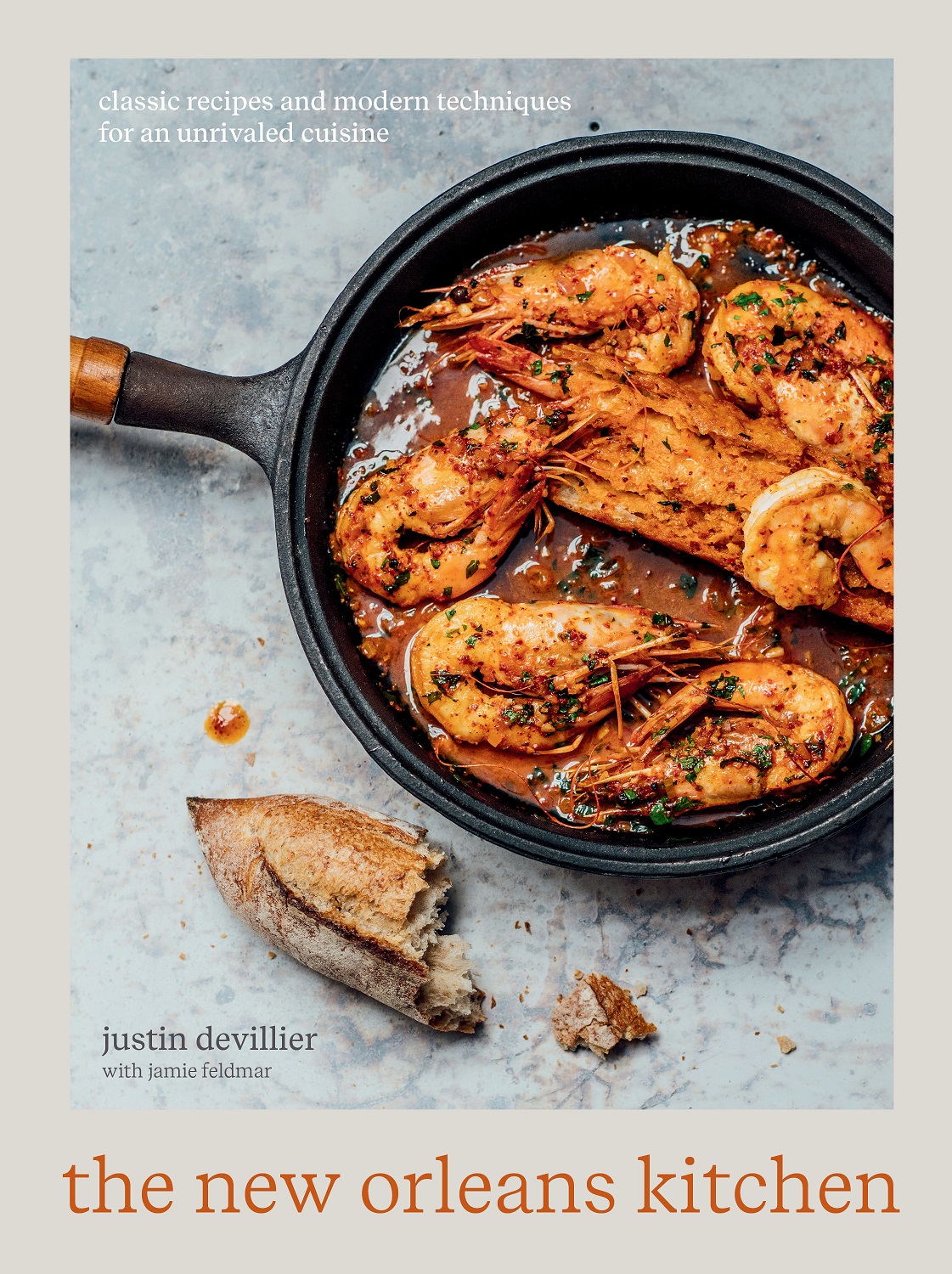
That approach is evident throughout his new cookbook, The New Orleans Kitchen, which showcases modern interpretations of iconic Louisiana dishes with more than one hundred recipes—complete with step-by-step photos and detailed directions for building blocks, like roux. “The book really is there to show people techniques and processes, and then spark those light-bulb moments—when people can say, ‘Oh! I get it! I get why it’s like this, and now I can add a different ingredient and make it my own,’” Devillier says. “I hope it helps people gain the confidence to be more creative, and venture out with their own recipes.”
G&G caught up with Devillier to talk about the new book, cooking with wild game, and his, er, suggestions (not rules!) for making a great gumbo. Read the interview below, and get the recipe for his Duck and Andouille Gumbo here.
You’re a hunter and an angler. What is your favorite quarry—both to hunt or fish and to eat?
I love wild duck. I love duck hunting, and I love, in particular, the flavor that wild duck gives to broths and stocks. Too often, duck hunters will harvest the breast meat out of a duck and discard the rest, but I think that actually the best part of the wild duck is the bones and the carcasses. They just have such a unique, really rich, bird-bone flavor that you can’t find anywhere except for the wild.
In the book, you mention that appetizers are your favorite foods to make and eat. Why?
This book is very much for people who want to make these recipes at home, and if I’m at home, and making appetizers, what I’m most likely doing is hanging out with a lot of people having a good time. That, to me, is a lot more fun than feeding one main course or sitting down for dinner. I’d rather be standing up in the kitchen, snacking on small bites and having good conversation.
Preparing a roux is a big part of Cajun and Creole cuisines, but it can be intimidating. Do you have any tips for someone who might be trying to make a good roux for the first time?
Don’t try to push it on the first few tries. Especially in my gumbos, I like to push the roux to as dark as I can get it without burning it, but it takes some experience to get to that point. Early on, you can get a nice light-brown roux that’s gonna make you a really good gumbo, and it’s good practice for you be able to start to identify the transition that the flour goes through in the fat. That’s really what’s going to get you acclimated to making roux—watching how the flour changes over time through the smells, the sight, the sound. Then, you can start pushing it, because you’ll start to realize when you’re getting further and further without burning it. In short, take your time learning, and don’t try to go all the way the first time.
What are the most important elements of your go-to gumbo recipe?
I like the Louisiana-style gumbo, with a dark roux. That’s the style I grew up with, and the style I enjoy cooking. So I like to have a well-executed roux—meaning one that’s not burnt [laughs]—and then I like to have a fair amount of smoky pork, whether it’s tasso, andouille, ham hock, bacon. I also like to have a really flavorful stock as the base, whether that’s chicken stock or shrimp stock or whatever you want to use. Those are the three components I use as my baseline, and then I build on that using aromatics and herbs and shakes of vinegar and hot sauce and things like that.
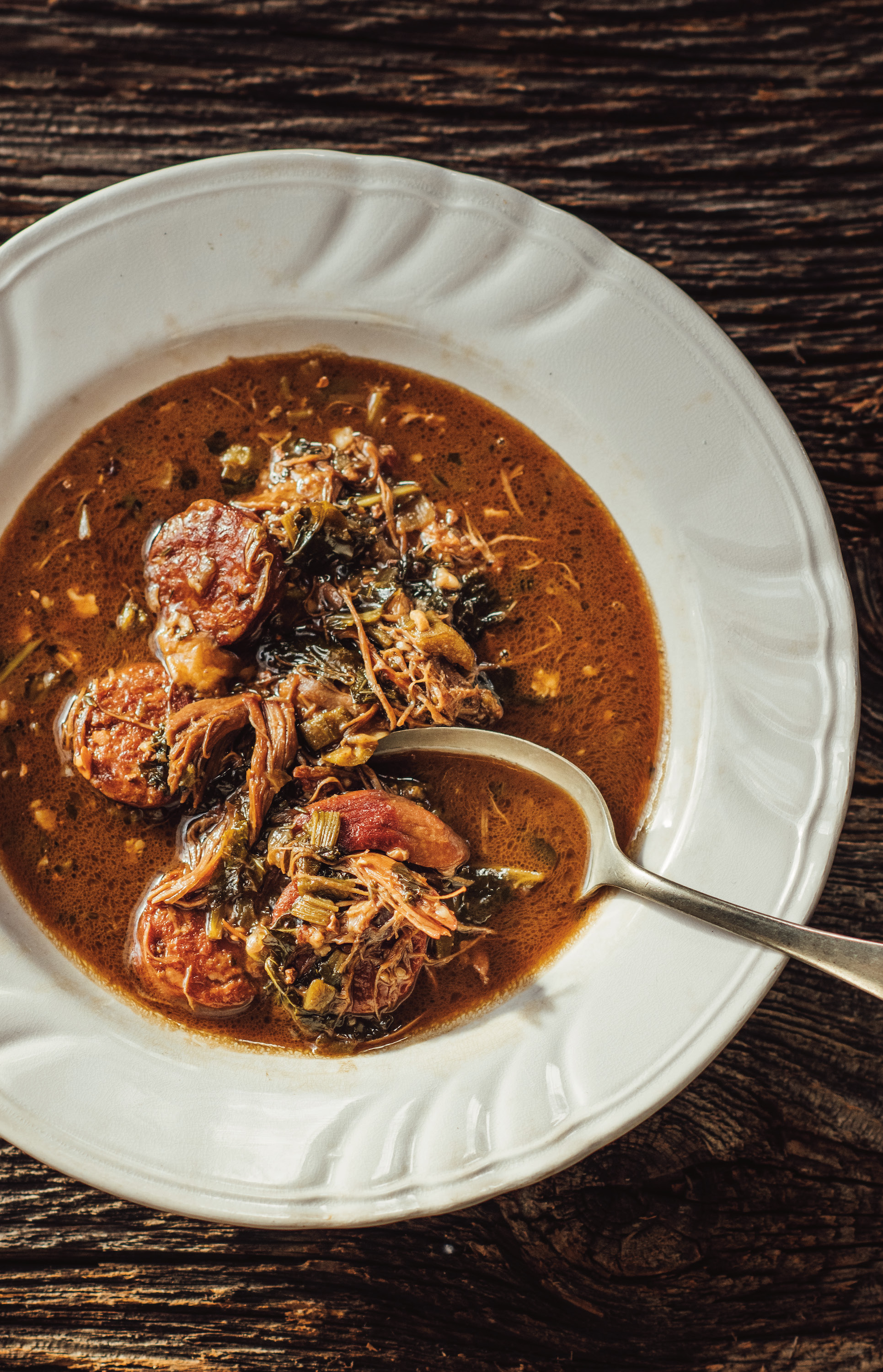
DENNY CULBERT
MORE: GET JUSTIN DEVILLIER’S RECIPE FOR DUCK AND ANDOUILLE GUMBO
Is there anything that’s absolutely mandatory for you to consider a dish “gumbo?”
A lot of people have very stubborn feelings on what makes gumbo gumbo, and it’s family to family or region to region. Everyone is very particular about their personal qualifications. I don’t think that there’s one way to make it. It all depends on where you’re at, what ingredients you have, what your preferences are for thickening. What vein of the gumbo story are you cooking out of? For instance, a gumbo in South Carolina is going to be quite different than a gumbo in South Louisiana. There’s just so many different ways to do it, and these days, I’m not super particular. If you want to make a gumbo, and call it gumbo, you can do whatever you want. I’m more than willing to enjoy it.


